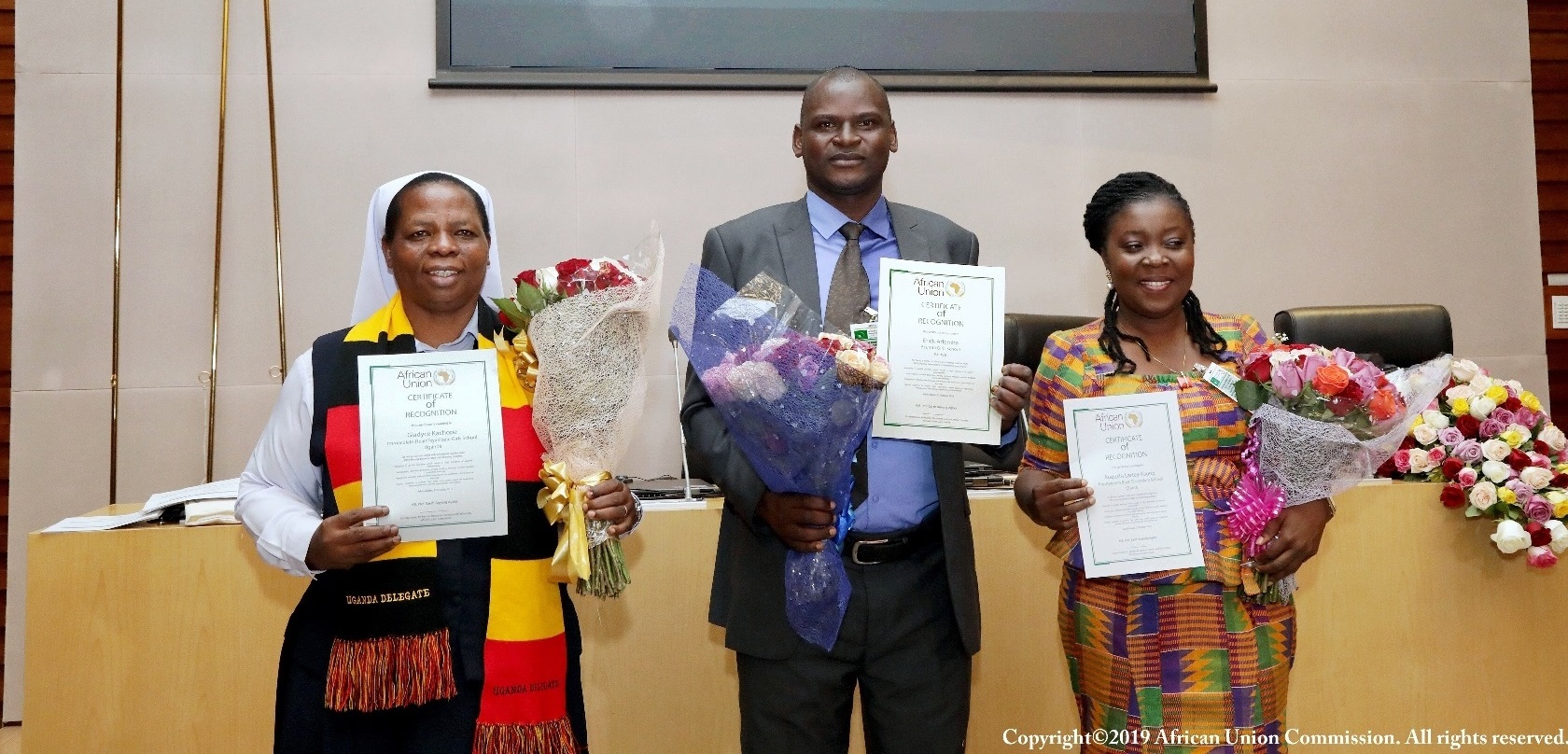
The information provided below was submitted as at 2020-11-26 17:20:17 by the ministry of women family and childhood of Tunisia in responding to the AU Survey of Member States response to the Reopening of Educational Institutions during COVID-19. The information is solely for experience sharing purposes and not to be used for other purposes without express permission of the African Union Commission.
| Country | Tunisia |
| Ministry | ministry of women family and childhood |
| Education level handled by the Ministry | Pre-School |
| What estimated percentage of Preschool have reopened for in-person learning? | 50-69 |
| What estimated percentage of Primary Schools have reopened for in-person learning? | |
| What estimated percentage of Secondary Schools have reopened for in-person learning? | |
| What estimated percentage of Universities have reopened for in-person learning? | |
| What estimated percentage of Technical and Vocational Education and Training Institutions have reopened for in-person learning? | |
| Challenges which have been faced in the reopening of educational institutions for in-person learning |
Logistical requirements, Financial burden, Inadequate information about the COVID-19 pandemic, Getting students back to school; |
| Is there a system to trace, treat and contain the spread of COVID-19 in educational institutions? | {Is there a system to trace treat and contain the spread of COVID-19 when schools are reopened:value} |
| Description of the system for tracing, treating and containing the spread of COVID-19 in educational institutions. | -Notify health officials, staff and families immediately, maintaining confidentiality -Create a list of close contacts of the sick student. -Ensure close contacts are notified and advised to stay home for 14 days, - Until disinfected, areas should be closed to the public -Decision on short-term closures should be taken together with local health authorities - conduct monitoring in close collaboration with schools and ,communities |
| Has there been an increase or decrease in the national budget allocation for education as a result of the COVID-19 pandemic? | {Has there been an adjustment in the national budget for education as a result of the COVID 19 pandemic:value} |
| Please indicate the extent of increase or decrease in the national budget allocation for education budget as a result of COVID-19? | Increase by 1-9 percent |
| Has there been an assessment of the impact of COVID-19 on students while educational institutions were closed? | Yes |
| Summary of the findings of the assessment of impact of COVID-19 on students while educational institutions were closed | The Covid-19 pandemic had a major psychosocial impact on the mental health of children and adolescents, especially when the child has mental health problems. During containment, the healthcare structures were subject to a significant restriction of their activities. The child and adolescent psychiatry department of the Mongi Slim Hospital in Tunis has set up telephone follow-up for patients deemed to be at risk. This follow-up involved 166 cases, the majority of them were suffering from neurodevelopmental disorders, followed by depressive disorders and adjustment disorders. A third of the patients had reported a worsening of the symptoms during the containment and a third had reported clinical improvement. During this follow-up, recommendations were made to parents to limit the negative impact of Covid-19 pandemic. Maintaining follow-up of patients with mental disorders by telemedicine is a major challenge in order to prevent the repercussions of this pandemic in the long term. |
| Adjustments that have been made in operations of educational institutions upon reopening |
Regular handwashing by students and teachers, Reduced number of students per classroom, Shorter time spent in educational institutions, Students and teachers wear masks, Suspension of field events and excursions, Regular disinfection of frequently touched areas in educational institutions (at least once a day); |
If you are interested in contacting the Ministry for further information, please contect This email address is being protected from spambots. You need JavaScript enabled to view it.. Please note that any secondary use of this data is not allowed without seeking express permission of the African Union Commission.

















